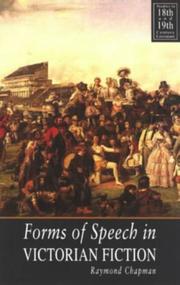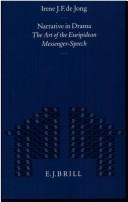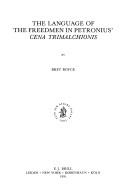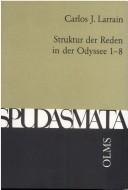| Listing 1 - 10 of 16 | << page >> |
Sort by
|
Book
Year: 1955 Publisher: Uppsala : Almqvist & Wiksell,
Abstract | Keywords | Export | Availability | Bookmark
 Loading...
Loading...Choose an application
- Reference Manager
- EndNote
- RefWorks (Direct export to RefWorks)
Greek literature --- Apostrophe (Rhetoric) --- Daimonie (The Greek word) --- Greek language --- Speech in literature --- Littérature grecque --- Apostrophe (Rhétorique) --- Grec --- Parole dans la littérature --- History and criticism --- Figures of speech --- Histoire et critique --- Figures de rhétorique
Multi
ISBN: 9780521513951 0521513952 9780511763267 9781107684416 1107684412 0511850336 9786612723414 0511775695 0511776454 0511774931 0511772807 0511763263 1282723413 0511773870 Year: 2010 Publisher: Cambridge Cambridge university press
Abstract | Keywords | Export | Availability | Bookmark
 Loading...
Loading...Choose an application
- Reference Manager
- EndNote
- RefWorks (Direct export to RefWorks)
"What is colloquial Latin? What can we learn about it from Roman literature, and how does an understanding of colloquial Latin enhance our appreciation of literature? This book sets out to answer such questions, beginning with examinations of how the term 'colloquial' has been used by linguists and by classicists (and how its Latin equivalents were used by the Romans) and continuing with exciting new research on colloquial language in a wide range of Latin authors. Each chapter is written by a leading expert in the relevant area, and the material presented includes new editions of several texts. The Introduction presents the first account in English of developments in the study of colloquial Latin over the last century, and throughout the book findings are presented in clear, lucid, and jargon-free language, making a major scholarly debate accessible to a broad range of students and non-specialists"--Provided by publisher.
Classical Latin literature --- Stilistics --- Classical Latin language --- Pragmatics --- Latin language --- Latin language, Colloquial. --- Latin literature --- Speech in literature. --- Latin (Langue) --- Latin familier (Langue) --- Littérature latine --- Parole dans la littérature --- Style. --- History and criticism. --- Stylistique --- Histoire et critique --- Latin language, Colloquial --- Speech in literature --- Style --- History and criticism --- Littérature latine --- Parole dans la littérature --- Colloquial Latin --- Colloquial language --- Latin language, Vulgar --- Spoken Latin --- Arts and Humanities --- History --- Latin language - Style --- Latin literature - History and criticism

ISBN: 0582087457 0582087465 Year: 1994 Publisher: London Longman
Abstract | Keywords | Export | Availability | Bookmark
 Loading...
Loading...Choose an application
- Reference Manager
- EndNote
- RefWorks (Direct export to RefWorks)
Conversation in literature --- Dialogue --- English fiction --- English language --- Speech in literature --- Conversation dans la littérature --- Roman anglais --- Anglais (Langue) --- Parole dans la littérature --- History and criticism --- Spoken English --- Histoire et critique --- Anglais parlé --- 820 "18" --- Engelse literatuur--19e eeuw. Periode 1800-1899 --- 820 "18" Engelse literatuur--19e eeuw. Periode 1800-1899 --- Conversation dans la littérature --- Parole dans la littérature --- Anglais parlé --- Colloquial English --- Dialog --- Drama --- Germanic languages
Book
ISBN: 0333408713 0333408721 Year: 1988 Publisher: London Macmillan
Abstract | Keywords | Export | Availability | Bookmark
 Loading...
Loading...Choose an application
- Reference Manager
- EndNote
- RefWorks (Direct export to RefWorks)
Characters and characteristics in literature --- Dialect literature, English --- Dialogue --- English fiction --- English language --- Speech in literature --- Personnages dans la littérature --- Roman anglais --- Anglais (Langue) --- Parole dans la littérature --- History and criticism --- Style --- Histoire et critique --- Stylistique --- 820-31 --- Engelse literatuur: novel; roman --- 820-31 Engelse literatuur: novel; roman --- Personnages dans la littérature --- Parole dans la littérature --- Dialog --- Drama --- English dialect literature --- English literature --- Character sketches --- Characterization (Literature) --- Literary characters --- Literary portraits --- Portraits, Literary --- History and criticism. --- Germanic languages

ISBN: 0847684490 0847684504 9780847684502 Year: 1997 Publisher: Lanham, MD : Rowman & Littlefield Publishing,
Abstract | Keywords | Export | Availability | Bookmark
 Loading...
Loading...Choose an application
- Reference Manager
- EndNote
- RefWorks (Direct export to RefWorks)
Greek drama --- Oratory, Ancient --- Greek language --- Speech in literature. --- Rhetoric, Ancient. --- Théâtre grec --- Eloquence antique --- Grec --- Parole dans la littérature --- Rhétorique ancienne --- History and criticism. --- Spoken Greek. --- Histoire et critique --- Grec parlé --- Speeches, addresses, etc., Greek --- Oral communication --- Oratory, Ancient. --- Théâtre grec --- Parole dans la littérature --- Rhétorique ancienne --- Grec parlé --- Greek drama - History and criticism. --- Speeches, addresses, etc., Greek - History and criticism. --- Greek language - Spoken Greek. --- Oral communication - Greece.
Book
ISBN: 2905053593 9782905053596 Year: 1988 Publisher: Paris Aux Amateurs de livres
Abstract | Keywords | Export | Availability | Bookmark
 Loading...
Loading...Choose an application
- Reference Manager
- EndNote
- RefWorks (Direct export to RefWorks)
Flaubert, Gustave --- Dialogue --- Narration (Rhetoric) --- Speech in literature --- Narration --- Parole dans la littérature --- Flaubert, Gustave, --- Technique --- Speech in literature. --- Dialogue. --- History --- Theses --- Parole dans la littérature --- Technique. --- Dialog --- Drama --- Flaubert, Gustaw, --- Flober, Gi︠u︡stav, --- Fu-lou-pai, --- Fu, Lou-pai, --- Fu-lou-pai, Chü-ssu-tʻa fu, --- Fuloubai, --- Phlōmper, Gkystav, --- Phlōmper, Goustauos, --- Флобер, Гюстав, --- פלאבער, ג. --- פלאבער, גוסטאוו, --- פלובר, גוסטאב --- 福樓拜, --- Flūbir, Gūstāv, --- Flūbir, Gūstāw, --- فلوبر، گوستاو --- Narration (Rhetoric) - History - 19th century. --- Flaubert, gustave (1821-1880) --- Dialogue (littérature) --- Analyse du discours littéraire --- Style
Book
ISBN: 0520037022 Year: 1979 Publisher: Berkeley : University of California Press,
Abstract | Keywords | Export | Availability | Bookmark
 Loading...
Loading...Choose an application
- Reference Manager
- EndNote
- RefWorks (Direct export to RefWorks)
Historical drama, English --- Lancaster, House of, in literature --- Speech acts (Linguistics) in literature --- Théâtre historique anglais --- Lancaster, --- Actes de parole dans la littérature --- History and criticism --- Histoire et critique --- dans la littérature --- Shakespeare, William, --- Histories --- Théâtre historique --- Great Britain --- Grande-Bretagne --- History --- Historiography --- Histoire --- Historiographie --- Oral communication in literature. --- Speech acts (Linguistics) --- Speech in literature. --- History and criticism. --- Lancaster, House of --- Histories. --- In literature. --- Historiography. --- Speech acts (Linguistics). --- Théâtre historique anglais --- Actes de parole dans la littérature --- dans la littérature --- Théâtre historique

ISBN: 9004094067 9004329129 Year: 1991 Volume: 116 Publisher: Leiden Brill
Abstract | Keywords | Export | Availability | Bookmark
 Loading...
Loading...Choose an application
- Reference Manager
- EndNote
- RefWorks (Direct export to RefWorks)
This book, consisting of three self-contained studies, deals with the Euripidean messenger-speech. The first study concerns the form of the messenger-speech, which is that of a first-person narrative, and the consequences of this form. The second study analyses the messenger's style of presentation. In the third study the place and function of the messenger-speech within the play is discussed. Although scholars have dealt with the messenger-speech before, there is no single, up-to-date work of reference available. The present study aims at filling this void, while making use of analytical tools deriving from narratology and drama-theory. Eight appendices are added, which provide the reader with complete lists of phenomena discussed in the main text. Often considered transparent and self-explanatory, the messenger-speeches are now shown to be both complex and subtle texts.
Drama --- Euripides --- Messengers in literature --- Speech in literature --- Narration (Rhetoric) --- Rhetoric, Ancient --- Greek drama (Tragedy) --- Messagers dans la littérature --- Parole dans la littérature --- Narration --- Rhétorique ancienne --- Tragédie grecque --- History and criticism --- Histoire et critique --- Characters --- Messengers. --- Mythology, Greek, in literature. --- Messengers in literature. --- Speech in literature. --- Rhetoric, Ancient. --- Tragedy. --- History --- 875 EURIPIDES --- Mythology, Greek, in literature --- Tragedy --- Classical languages --- Greek language --- Greek rhetoric --- Latin language --- Latin rhetoric --- Narrative (Rhetoric) --- Narrative writing --- Rhetoric --- Discourse analysis, Narrative --- Narratees (Rhetoric) --- Griekse literatuur--EURIPIDES --- -Characters --- -Messengers --- 875 EURIPIDES Griekse literatuur--EURIPIDES --- -Euripides --- Euripide --- Messagers dans la littérature --- Parole dans la littérature --- Rhétorique ancienne --- Tragédie grecque --- History and criticism. --- Ancient rhetoric --- Ėvripid --- Yūrībīdīs --- Euripedes --- Eŭripido --- Eurypides --- Euripidesu --- אוריפידס --- エウリーピデース --- Εὐριπίδης --- Messengers as literary characters --- Euripides. --- To 1500

ISBN: 9004094318 9004329137 9789004094314 Year: 1991 Volume: 117 Publisher: Leiden Brill
Abstract | Keywords | Export | Availability | Bookmark
 Loading...
Loading...Choose an application
- Reference Manager
- EndNote
- RefWorks (Direct export to RefWorks)
Realistic representation of the speech of the lower classes in ancient literature is largely confined to the comic genres, and Petronius' realism in this area is more thorough-going than that of any other ancient author. A vast scholarly literature has grown up around the question of how faithfully the speeches of Petronius' freedmen reflect characteristics of actual popular speech; this literature is reviewed and evaluated. A survey of the phonological, morphological, lexical, and syntactic peculiarities in these speeches is then undertaken, in which they are compared with other 'vulgar' Latin sources such as the Pompeian inscriptions; Petronius is in fact one of our most important early sources for the study of popular Latin. The way in which Petronius used specific varieties of non-standard Latin to characterize different freedmen speakers is explored: Petronius has subtly modulated his freedmen's speeches to reflect differing emotional states and the different attitudes of the speakers toward their social position. The present study is the first comprehensive treatment of the subject undertaken in over forty years in any language and the only one in English.
Petronius Arbiter, Caius Titus --- Freedmen --- Latin language, Vulgar --- Freedmen in literature --- Speech in literature --- Affranchis --- Latin populaire (Langue) --- Affranchis dans la littérature --- Parole dans la littérature --- Language --- Langage --- Petronius Arbiter. --- Freedmen in literature. --- Speech in literature. --- Language. --- Texts. --- -Freedmen in literature --- -Speech in literature --- Latin language, Popular --- Latin language, Colloquial --- Ex-slaves --- Freed slaves --- Slaves --- Texts --- Petronius Arbiter --- Petronius, Arbiter --- -Petron --- Pétrone, T. --- Petronio --- Petronio Arbitro --- Petronio, Caio --- Petronio, Cayo --- Petronius --- Petronius Arbiter, --- Petronius Arbiter, Titus --- Petronius, Gaius --- Petronius, Titus --- -Language --- Affranchis dans la littérature --- Parole dans la littérature --- Petron --- Petronio Árbitro --- Petronius, Caius --- Petronius, Gaius Titus --- Pétrone --- Language and languages. --- Latin language, Vulgar. --- Foreign languages --- Languages --- Anthropology --- Communication --- Ethnology --- Information theory --- Meaning (Psychology) --- Philology --- Linguistics --- Cena Trimalchionis (Petronius Arbiter) --- Rome (Empire) --- Rim --- Roman Empire --- Roman Republic --- Rome --- Romi (Empire) --- Byzantine Empire --- Italy --- Freedpersons --- Freed persons --- Freed persons in literature. --- Freedmen - Rome - Language. --- Latin language, Vulgar - Texts. --- Trimalchio, C. Pompeius --- Ex-enslaved persons --- Freed enslaved persons --- Enslaved persons

ISBN: 3487078317 9783487078311 Year: 1987 Volume: 41 Publisher: Hildesheim Olms
Abstract | Keywords | Export | Availability | Bookmark
 Loading...
Loading...Choose an application
- Reference Manager
- EndNote
- RefWorks (Direct export to RefWorks)
Speech in literature --- Odysseus (Greek mythology) in literature --- Conversation in literature --- Rhetoric, Ancient --- Parole dans la littérature --- Odyssée (Mythologie grecque) dans la littérature --- Conversation dans la littérature --- Rhétorique ancienne --- Homer. --- Homer --- Classical languages --- Greek language --- Greek rhetoric --- Latin language --- Latin rhetoric --- Rhetoric --- Hóiméar --- Hūmīrūs --- Homeros --- Homerus --- Gomer --- Omir --- Omer --- Omero --- Ho-ma --- Homa --- Homérosz --- האמער --- הומירוס --- הומר --- הומרוס --- هومر --- هوميروس --- 荷马 --- Ὅμηρος --- Гамэр --- Hamėr --- Омир --- Homero --- 호메로스 --- Homerosŭ --- Homērs --- Homeras --- Хомер --- ホメーロス --- ホメロス --- Гомер --- Homeri --- Hema --- Pseudo-Homer --- Pseudo Omero --- Homère --- Parole dans la littérature --- Odyssée (Mythologie grecque) dans la littérature --- Conversation dans la littérature --- Rhétorique ancienne --- Rhetoric, Ancient. --- Ancient rhetoric --- Homerus. --- Homère. Odyssée. Discours. --- Homerus. Odyssee. Reden. --- Homer. - Odyssey
| Listing 1 - 10 of 16 | << page >> |
Sort by
|

 Search
Search Feedback
Feedback About UniCat
About UniCat  Help
Help News
News